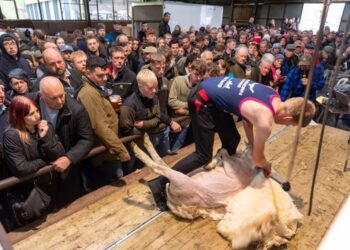Penrith Beekeepers’ Association has produced its 2021 calendar, illustrated by members and friends and packed with amazing facts about bees.
It also includes examples of bee friendly plants which can be grown in gardens to provide bees of all kinds with sources of nectar and pollen all year round.
Of the 100 crops that provide 90 per cent of the world’s food, 70 can only thrive if they are pollinated by bees.
There are 220 different bee species living in the UK. These consist of three main types: solitary bees, bumblebees and honey bees.
While solitary bees live alone, bumblebees and honey bees live in social groups known as colonies.
Honey bees are particularly essential for the production of food crops and other plants as they are the most efficient pollinators.
Bees are dependent on plants to provide them the sugary syrup known as nectar, which gives them energy, which they eventually turn into honey, and pollen, a vital source of protein.
Sadly, bees and other pollinators are in serious decline.
Their survival is threatened because of the impact of insecticides and intensive farming methods which have destroyed 95 per cent of UK wildflower meadows since the 1960s.
In addition, over the years, garden flowers have increasingly been developed to please the human eye.
Flowers with large, multi-petaled heads, for example, may be attractive to us, but bees find difficulty in accessing the pollen and nectar inside their centres. Alien pests such as the ‘varroa mite’ (which arrived in the UK during the 1990s) have also weakened the bees’ resistance to disease.
Penrith Beekeepers Association (PBKA) has a training apiary in the orchard at Acorn Bank, Temple Sowerby, where beekeepers are helped to develop their skills to recognise and deal with the pests and diseases which threaten bees.
Last year PBKA began a queen bee rearing project to enable local beekeepers to rear colonies of bees that are healthy and genetically suited to survive Cumbria’s cold, damp and wintry conditions.
Copies of the 2021 PBKA calendar are on display and<\n>available for purchase from retailers in and around Penrith.
For further information visit www.penrith-beekeepers.org































